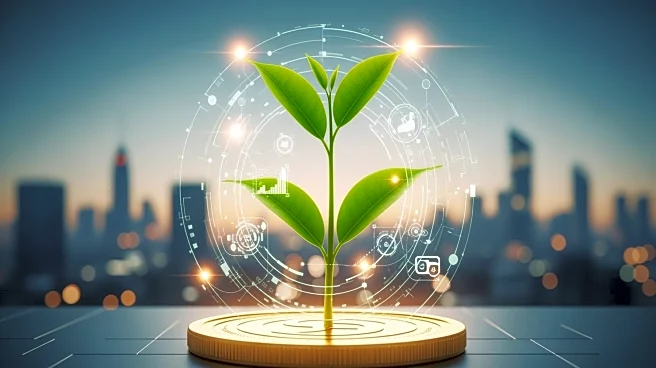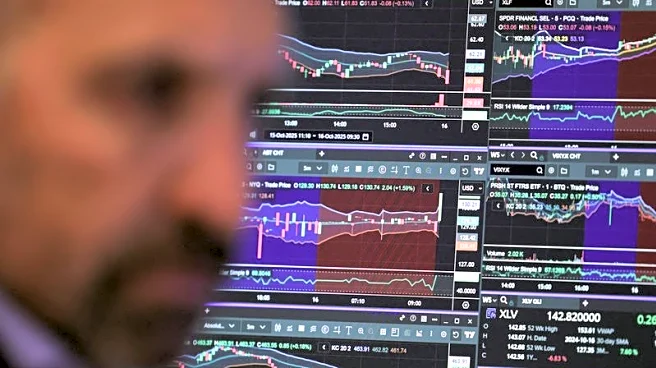What's Happening?
A rapidly growing 'climate economy' is emerging as the global climate crisis accelerates, focusing on monetizing products and services that drive both mitigation and resilience. This market includes a wide range of solutions such as carbon capture, renewable
energy infrastructure, circular economy models, and nature-based solutions like blue carbon credits. The development of this market is driven by the need to create profitable, impactful, and equitable markets around these solutions. However, several challenges exist, including consumer adoption, which is influenced by price parity and convenience, and the need for government stewardship to ensure robust and equitable markets.
Why It's Important?
The emergence of the climate economy is significant as it represents a shift towards sustainable business models that prioritize long-term efficiency and risk reduction. This market has the potential to drive significant economic growth while addressing climate change. Financial institutions are increasingly adopting Transition Finance frameworks, which support the transition of high-emitting companies and unlock capital for mature climate solutions. The focus on adaptation technology and carbon removal is also growing, driven by corporate net-zero pledges. This trend highlights the importance of balancing market incentives with public good, ensuring equity in access and outcomes, and adapting to evolving consumer behaviors and global policy landscapes.
What's Next?
The future of the climate economy will likely involve continued innovation in business models and financial mechanisms, as well as increased consumer engagement strategies. Government policies and regulatory mandates will play a crucial role in shaping the market, with potential measures including carbon taxes, border adjustments, and clear carbon labeling. As the market evolves, there will be a need to ensure that climate-friendly choices become the path of least resistance for both businesses and consumers, promoting widespread adoption and impact.
Beyond the Headlines
The development of the climate economy raises important ethical and cultural considerations, such as ensuring that the benefits of climate solutions are distributed equitably across different communities and regions. There is also a need to address cognitive overload among consumers, who may struggle to identify and execute effective behaviors for climate mitigation. By providing clear information and incentives, stakeholders can help consumers make informed choices that contribute to a sustainable future.
















